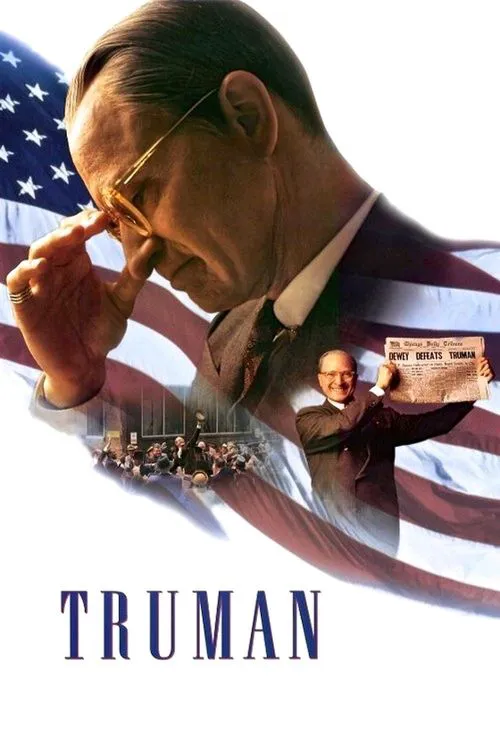Truman

พล็อต
Truman is a 1995 American biographical drama film that tells the story of Harry S. Truman, the 33rd President of the United States, played by Gary Sinise. The film, directed by Daniel Petrie, explores the tumultuous period Truman navigated following the death of President Franklin D. Roosevelt in 1945. The movie begins with Truman's humble beginnings in Independence, Missouri. As a young man, he moves to Kansas City, where he works as a clerk and a bank teller, eventually serving in the United States Army during World War I. The story then jumps to 1944, where Truman, now a respected politician, becomes FDR's running mate in the presidential election. Upon winning the election, Truman is thrust into the presidency after FDR's sudden death. Truman, a relatively inexperienced politician, finds himself grappling with the weight of leadership. He is beset on all sides by the complexities of the war effort, the Soviet Union's growing influence, and the internal politics of the Democratic Party. Truman's early days in office are marked by struggles with his advisors, particularly Secretary of State Edward Stettinius, and his decision to continue the Allied bombing campaign in Europe, which Truman orders, but ultimately takes steps to limit it due to high civilian casualties. As the Allies converge on Germany and Japan, Truman is faced with the monumental decision to drop atomic bombs on Hiroshima and Nagasaki. The film captures the tense debate leading up to Truman's decision, with advisors arguing both for and against the use of atomic bombs. Truman's eventual decision is motivated by a desire to avoid an invasion of Japan, which could lead to massive casualties on both sides, and a need to end the war quickly to minimize further American losses and prevent the Soviet Union from gaining a foothold in Asia. Truman's decision has far-reaching consequences, which are skillfully portrayed in the film. The bombings bring a sudden end to the war, but also raise questions about morality and the long-term implications of nuclear power. The film's portrayal of Truman's decision-making process is multifaceted, acknowledging both the historical imperative to end the war and the potential for regret and introspection about the means employed to achieve that end. Following the bombings, Truman's popularity surges, and he is elected to a full term in 1948, despite predictions of a defeat by the Republican candidate, Thomas Dewey. The film captures the grueling campaign, which includes Truman's famous 'Whistle Stop' tour across America. The election is depicted as a referendum on Truman's decision to drop atomic bombs and a measure of the nation's mood as it emerged from the wartime era. Throughout the film, Sinise delivers a nuanced and compassionate portrayal of Truman, capturing both the politician's sense of duty and his personal insecurities. The supporting cast, including the late Brian Bedford, Jeffrey DeMunn, and Blair Brown, adds depth to the story, with Bedford delivering a memorable turn as Stettinius. The cinematography and production design are also notable, recreating the wartime era with meticulous attention to detail. Ultimately, Truman is a film that humanizes its subject, conveying the complexities and doubts that often accompany moments of history. By focusing on Truman's internal journey, the movie raises essential questions about leadership, accountability, and the difficult choices that leaders must make in the face of uncertainty and chaos. As the years have passed, the film's portrayal of Truman's decision-making process has become increasingly relevant to contemporary discussions of the role of leadership in shaping the course of international relations and global security.
วิจารณ์
คำแนะนำ



